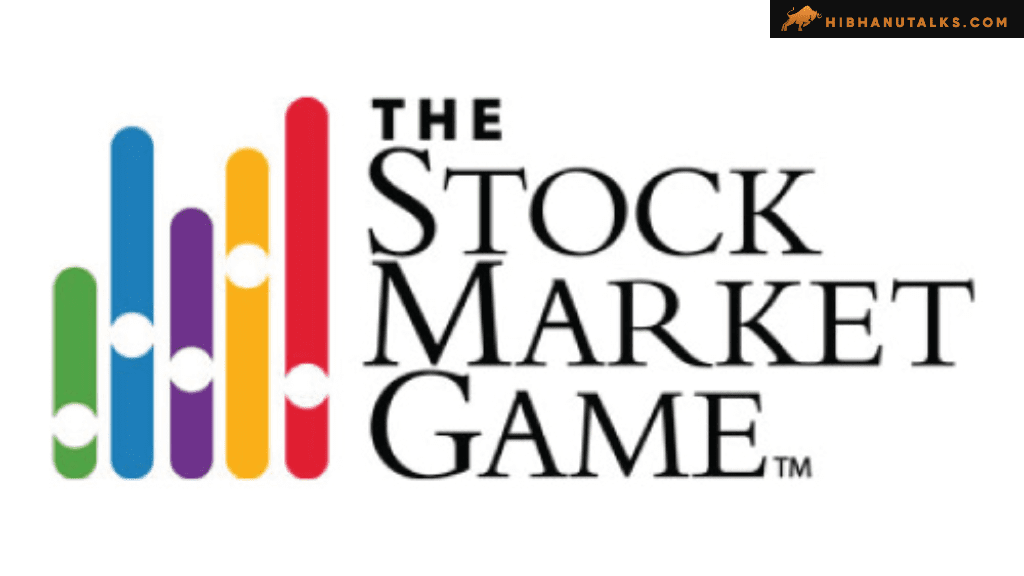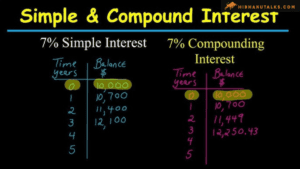
Stock Market Games and Competitions: A Clear-Cut Guide
Contents
Stock Market Games
Stock Market Games and Competitions: A Clear-Cut Guide
Introduction
The stock market can be an intimidating arena, especially for beginners who are just stepping into the world of investing. However, stock market games and competitions offer a safe and educational platform for individuals to learn, experiment, and hone their trading skills without risking real money. These virtual competitions simulate the real stock market environment, giving participants the chance to practice strategies, learn how markets work, and compete with others for prizes or recognition. In this article, we will take a deep dive into stock market games and competitions, their benefits, potential drawbacks, and how they can be used effectively to build financial literacy and investment skills.
What Are Stock Market Games and Competitions?
Stock market games and competitions are platforms or events where participants engage in simulated trading in a virtual environment that mimics real-life financial markets. These competitions may be organized by educational institutions, financial organizations, or online trading platforms. Participants are usually provided with virtual capital to invest in stocks, bonds, or other securities, and they compete against others based on the performance of their portfolios.
The ultimate objective is to outperform others by maximizing returns within a set time frame. Stock market games can vary widely in format, rules, and complexity. Some may last for weeks or months, while others could be short-term, intense competitions designed to test quick decision-making skills.
The Purpose of Stock Market Games and Competitions
The primary goal of stock market games is to educate participants about the functioning of financial markets, investment strategies, and risk management, without the actual financial risk. These competitions serve as a valuable tool for both beginners and experienced traders to:
- Learn Market Dynamics: Understand how the stock market operates, including factors that affect stock prices such as earnings reports, economic indicators, and news events.
- Practice Trading Strategies: Test different investment strategies like value investing, day trading, or swing trading in a risk-free environment.
- Develop Risk Management Skills: Experiment with how much risk to take on, how to hedge positions, and how to diversify a portfolio.
- Boost Financial Literacy: Enhance knowledge of financial concepts such as market volatility, price fluctuations, and asset allocation.
How Do Stock Market Games Work?
In most stock market games, participants start with a predetermined amount of virtual cash, which they can use to “buy” and “sell” stocks, bonds, or other financial assets listed on real exchanges. The trades are based on real-time market data, giving participants a realistic feel for how trades work and how market prices fluctuate.
Key Features of Stock Market Games and Competitions
- Real-Time Data: Most competitions use live stock prices and real-time market data to mirror actual trading conditions.
- Virtual Capital: Participants are given virtual money to trade with, removing the risk of financial loss.
- Time Frame: These games are usually conducted over a fixed period, ranging from days to months.
- Leaderboards: Competitors are ranked on a leaderboard based on the performance of their portfolios, which adds a competitive element to the learning process.
- Educational Resources: Many platforms offer tutorials, tips, and guidance to help participants understand how markets work.
Popular Stock Market Games and Competitions
There are various stock market games and competitions that cater to different levels of traders and investors, from beginners to seasoned professionals. Below are some well-known platforms:
- Investopedia Stock Simulator
The Investopedia Stock Simulator is one of the most popular platforms for virtual trading. It offers participants the opportunity to create and manage a virtual portfolio while competing against thousands of traders worldwide. The simulator is often used by beginners to understand the stock market without any risk.
Advantages:
- A user-friendly interface suitable for beginners.
- Real-time data and access to educational content.
Disadvantages:
- Limited advanced features for experienced traders.
- Wall Street Survivor
Wall Street Survivor is another well-regarded stock market game that focuses heavily on education. It allows participants to build portfolios using virtual money while offering various educational resources to help users learn about investing, trading strategies, and portfolio management.
Advantages:
- Excellent for beginners with robust educational content.
- Social and interactive features.
Disadvantages:
- The simulation may not be as fast-paced or realistic as other platforms.
- Fantasy Stock Exchange
Fantasy Stock Exchange offers stock market competitions with a twist. Players compete in a fantasy football-like setting but trade stocks instead of players. This gamification of stock trading makes the process more engaging for participants and offers an exciting and competitive edge.
Advantages:
- Fun and engaging format.
- Offers short-term, fast-paced competitions.
Disadvantages:
- Less focus on long-term investment strategies.
- MarketWatch Virtual Stock Exchange
MarketWatch offers a highly competitive virtual stock exchange game, allowing users to create custom games and compete in real-time using actual stock market data. It is widely used by individuals, schools, and financial organizations for educational purposes.
Advantages:
- Provides real-time stock data.
- Suitable for both beginners and seasoned investors.
Disadvantages:
- Can be overwhelming for new traders due to the fast-paced nature of the market.
Advantages of Stock Market Games and Competitions
Stock market games offer numerous benefits, particularly for those looking to build their understanding of financial markets and investment strategies. Below are the key advantages:
- Risk-Free Learning
Perhaps the most significant benefit of stock market games is the opportunity to learn without financial risk. Participants can try different strategies, make mistakes, and learn from them without losing any real money. This makes it an excellent learning tool for beginners who want to dip their toes into investing without fear.
- Real-Time Experience
Many stock market competitions simulate real-time market conditions, allowing participants to see how real-world events impact stock prices. This helps users develop a deeper understanding of how markets respond to news, economic indicators, and other external factors.
- Educational Value
These games are packed with educational features, including tutorials, webinars, and in-game prompts that explain various trading concepts. The hands-on experience combined with educational resources helps participants become more financially literate.
- Competitive Element
The competitive nature of these games can be highly motivating. Competing against others to achieve the highest portfolio value fosters a sense of accomplishment and encourages participants to put in the effort to learn and improve.
- Skill Building
Stock market games teach valuable skills like critical thinking, decision-making under pressure, and financial planning. These skills are transferable to real-world investing and other aspects of personal finance management.
Disadvantages of Stock Market Games and Competitions
While stock market games offer many benefits, they are not without their drawbacks. Understanding these limitations is crucial before participating:
- Lack of Emotional Impact
One of the key differences between virtual trading and real-world investing is the lack of emotional involvement. In real life, people are more emotionally invested when their hard-earned money is on the line. Stock market games remove this emotional component, which can make the experience feel less authentic.
- Unrealistic Risk-Taking
Since participants in stock market games are not trading with real money, they may take risks they wouldn’t ordinarily take in the real world. This can lead to an unrealistic understanding of risk management, as traders may not feel the consequences of their risky decisions.
- Overemphasis on Short-Term Gains
Many stock market games focus on short-term trading, where participants try to make quick profits over a short period. This can encourage a “get-rich-quick” mentality and overshadow the importance of long-term investing strategies.
- Limited Exposure to Market Costs
In the real world, investors must account for costs like transaction fees, taxes, and other expenses associated with trading. Most stock market games do not simulate these costs, leading to an incomplete understanding of the financial implications of real-world trading.
Examples of How Stock Market Games Can Help Investors
Example 1: Building Confidence in Beginners
Consider a college student who knows little about the stock market but is interested in investing. By participating in a stock market game, they can start trading with virtual money, learning about different industries, financial reports, and market trends. Over time, they build confidence and a solid foundation in stock trading without any risk. After mastering the virtual platform, they feel more prepared to start investing with real money.
Example 2: Testing Investment Strategies
An experienced trader might use stock market games to test new investment strategies. For example, they might want to experiment with a more aggressive trading strategy but are unsure about the risks involved. The virtual platform allows them to test this strategy without the potential for real financial loss. If the strategy is successful, they can later apply it to their real-world portfolio.
How Stock Market Games Contribute to Financial Literacy
Stock market games are not just about winning competitions or earning virtual profits—they play a significant role in financial education. Schools, universities, and financial literacy programs often incorporate stock market games to teach students about personal finance and investing. The interactive and competitive nature of these games makes learning more engaging, allowing students to grasp complex financial concepts more effectively.
Conclusion
Stock market games and competitions provide a valuable platform for individuals to learn about the stock market, develop trading strategies, and enhance financial literacy—all without risking real money. Whether you’re a beginner looking to understand the basics or an experienced investor wanting to test new strategies, these competitions offer a practical and risk-free environment for learning.
However, it is essential to remember that while stock market games provide an excellent educational experience, they do not perfectly replicate real-world investing. The absence of emotional involvement, the potential for unrealistic risk-taking, and the focus on short-term gains mean that participants should approach these games as learning tools rather than simulations of actual trading behavior.
FAQs
- Are stock market games suitable for beginners?
Yes, stock market games are an excellent way for beginners to learn the basics of investing and the stock market without any risk. Many platforms offer tutorials and educational content to guide new participants.
- Can I use the strategies I learn in stock market games in real trading?
While stock market games can help you understand strategies and market behavior, real-world trading involves emotional decision-making, transaction costs, and the risk of financial loss. The strategies you develop in stock market games should be carefully tested in real-world conditions.
- Do stock market games offer prizes?
Many stock market competitions offer prizes such as cash rewards, recognition, or scholarships. However, the focus of these games is primarily on education and skill development.
- How do stock market games simulate real-world trading?
Stock market games use real-time data and mimic actual market conditions. Participants trade virtual money on real stock exchanges, providing a close simulation of real-world trading, though without actual financial risks.
- Can experienced traders benefit from stock market games?
Yes, experienced traders can use stock market games to test new strategies or hone their skills in a risk-free environment before applying them to real-world trading.





















2 comments